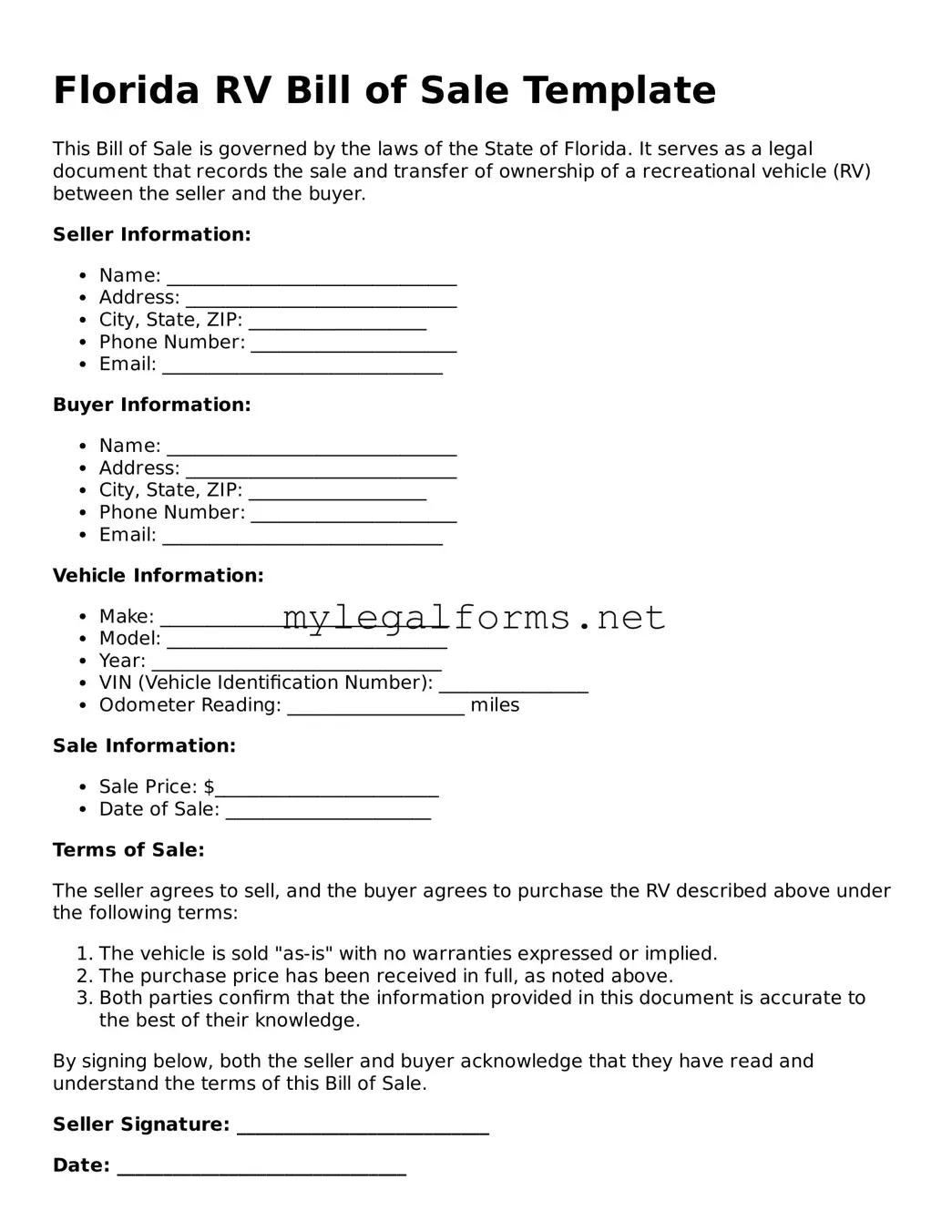When filling out the Florida RV Bill of Sale form, individuals often overlook critical details that can lead to complications down the road. One common mistake is failing to provide complete information about the RV. This includes not only the make, model, and year but also the Vehicle Identification Number (VIN). Omitting any of these details can create confusion and may result in issues during registration or transfer of ownership.
Another frequent error is neglecting to include the purchase price. While it may seem straightforward, leaving this section blank or inaccurately stating the amount can lead to complications, especially when it comes to taxes and title transfers. It is essential to clearly specify the agreed-upon price to avoid disputes later on.
Additionally, many people forget to date the form. The date is crucial as it indicates when the sale occurred. Without a date, it may be challenging to prove ownership or establish the timeline of the transaction, which can be particularly problematic if any legal issues arise after the sale.
Providing incorrect or incomplete seller and buyer information is another mistake that can have significant repercussions. Both parties should ensure that their names, addresses, and contact information are accurate. This information is vital for any future correspondence and for the proper transfer of ownership.
Some individuals also overlook the importance of signatures. Both the seller and the buyer must sign the form to validate the transaction. Failing to obtain the necessary signatures can render the document ineffective, which may lead to ownership disputes or difficulties in registering the RV.
Another common oversight is not including any disclosures regarding the condition of the RV. If the RV has any known issues or defects, it is important to disclose these to the buyer. Failing to do so could lead to legal ramifications if the buyer feels misled after the sale.
People sometimes misinterpret the need for witnesses or notarization. While not always required, having a witness or notarizing the document can add an extra layer of protection for both parties. This step can help verify the authenticity of the transaction and can be beneficial if any disputes arise later.
Lastly, individuals often forget to keep a copy of the completed Bill of Sale for their records. It is advisable to retain a copy for personal documentation, as this serves as proof of the transaction and can be useful for future reference, especially when dealing with registrations or potential legal matters.

